Belizean Women Discuss State of Fishing Industry
There are roughly a hundred registered and unregistered women fishers in Belize. A progressively challenging industry, coupled with climate change factors, have compounded their chances of making their livelihood profitable. Now, through the formation of the Women in Fisheries Association, these ladies hope to be able to access more and better opportunities to advance their lives. For the past two days, the newly formed association has been meeting in Hopkins Village to discuss all the prevailing factors. News Five’s Marion Ali filed the following report.
Marion Ali, Reporting
Over seventy women from eleven fishing communities across Belize completed the 7th annual Women in Fisheries Forum today. The event which took place in Hopkins Village, saw for the first time the selection of a president of the newly formed Women in Fisheries Association. Ralnah Lamb-Lewis, the Assistant Country Director for Marine at Wildlife Conservation Society told News Five that the fisher women are looking for inclusion in an industry that has become ever more challenging.
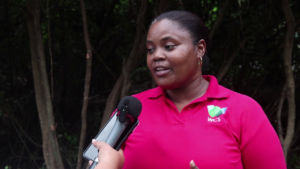
Ralnah Lamb-Lewis
Ralnah Lamb-Lewis, Assistant Country Director, Marine at Willdlife Conservation Society
“The women who are involved in the various activities along the fisheries value chain, whether it’s processing value added, marketing. They want their voices to be heard. They want to be a part of the decision-making body that is involved when it comes to management decisions regarding fisheries, as well as decisions that impact their livelihoods. So that is one of the main things that they want to look at. And as an association, they’ll be able to advocate on their behalf, basically, for their membership as well as ensure that they are able to receive investments that benefit them and their households and their communities.”
As the association’s first president, Paula Jacobs-Williams will seek to push for better opportunities that have been non-existent for women to advance in the fisheries sector.
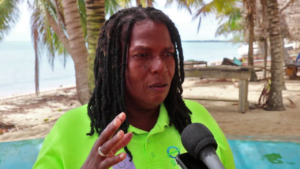
Paula Jacobs-Williams
Paula Jacobs-Williams, President, Women in Fisheries Association
“Right now, D.F.C. di give the fishers dehn wa lotta problem, so we want to – we hope we could get together, as women in fisheries, and we could find a way that’s easier that we could get a loan or a grant. You could just go in and not have a lot of signing and need somebody fi back we up, you understand me? And then for the future girls, then we want something like a retirement scheme. I want to see that for wi future girls and fisheries ladies, that we have some kind of retirement scheme, even if we have to open like a cooperative, maybe a credit union somewhat. So at the end of it, we are insured that once I say I’m retiring this year, I could have some kind of benefit at the end of the retirement.”
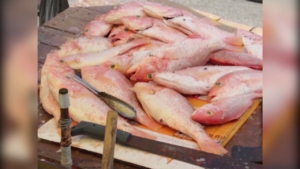 A representative from the D.F.C was present to assure the women fishers that they would have access to financing at slightly cheaper rates than other loan programs, with no collateral requirements. During her two-year term, Jacobs-Williams will endeavor to have a cooperative formed that could assist the women fishers and their groups to package and market their marine products locally and abroad. That realization would come in the face of a few challenges the women are currently facing. Olga Colon is a nineteen-year-old fisherwoman from Barranco Village who has been accompanying her father at sea for as long as she can remember. She says the conditions keep getting tougher, and she would welcome the new opportunities.
A representative from the D.F.C was present to assure the women fishers that they would have access to financing at slightly cheaper rates than other loan programs, with no collateral requirements. During her two-year term, Jacobs-Williams will endeavor to have a cooperative formed that could assist the women fishers and their groups to package and market their marine products locally and abroad. That realization would come in the face of a few challenges the women are currently facing. Olga Colon is a nineteen-year-old fisherwoman from Barranco Village who has been accompanying her father at sea for as long as she can remember. She says the conditions keep getting tougher, and she would welcome the new opportunities.
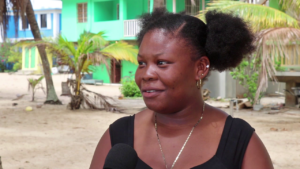
Olga Colon
Olga Colon, Young Fisherwoman
“As we all know, the sun just di get worse and we have to stay more protected and it’s harder fi deh outta sea with the sun just di blast for your skin. And we have skiff, we don’t have the canopy pahn we boat soh we get it real bad. I just have to put in more work out at sea and go further out. Right now fish nuh deh bout that much but I personally di hope fi eventually get me a land by the coast soh I could have easier access to the sea.”
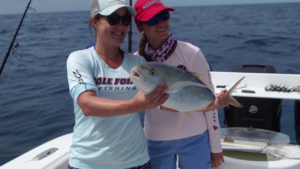 Organizations such as the International Institute for Sustainable Development, a Canada-based organization deal with climate-change issues. Colon and these women are relying on these NGOs to maximize their opportunities. National Coordinator, Gisele Borland says they are here to assist. And at least two groups from Belize would also be eligible for grant funding.
Organizations such as the International Institute for Sustainable Development, a Canada-based organization deal with climate-change issues. Colon and these women are relying on these NGOs to maximize their opportunities. National Coordinator, Gisele Borland says they are here to assist. And at least two groups from Belize would also be eligible for grant funding.
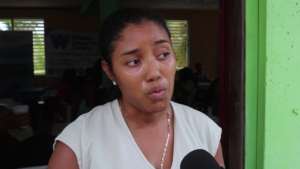
Gisele Borland
Gisele Borland, National Coordinator, International Institute for Sustainable Development
“One of the things that I.I.S.D. is doing is that we’re trying to have communities tell us what would be the best things for them to adopt because Belize is very unique. What might work for Africa or Fiji might not work for Belize. So it’s best that communities tell us what would be the best solution for their climate change issues, and then we listen to them and we try to see how we can work through those issues.”
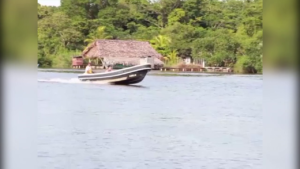 Marion Ali
Marion Ali
“The support would come in what form then?”
Gisele Borland
“We have – the I.I.S.D. has an innovation fund that we will be issuing soon in July and we’re hoping to launch in September, where different women group and underrepresented groups can write into us a proposal, and then we will fund a nature-based solution for adaptation project that they have within their communities.”
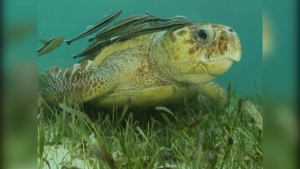 Present all the way from across the Caribbean Sea was the Bahamas Commercial Fishers Alliance. President Adrian Laroda told News Five that their attendance was more of an information and fact-finding exchange. He said that although Belize and the Bahamas are geographically distant, we share some commonalities.
Present all the way from across the Caribbean Sea was the Bahamas Commercial Fishers Alliance. President Adrian Laroda told News Five that their attendance was more of an information and fact-finding exchange. He said that although Belize and the Bahamas are geographically distant, we share some commonalities.
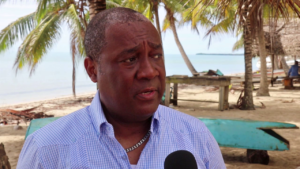
Adrian Laroda
Adrian Laroda, President, Bahamas Commercial Fishers Alliance
“Admittedly, we don’t have a lot of women as managers of the fishery sector in the Bahamas, but they’re more in the processing side, but they can take the message back. And there’s lessons to be learned from this particularly in this age where there is greater focus now on women’s rights and gender and youth. While we are separated geographically, the similarities are there. It’s important for them to have unity, even when there’s disagreement, there’s disbarment, it’s important to be unified.”
Marion Ali for News Five.





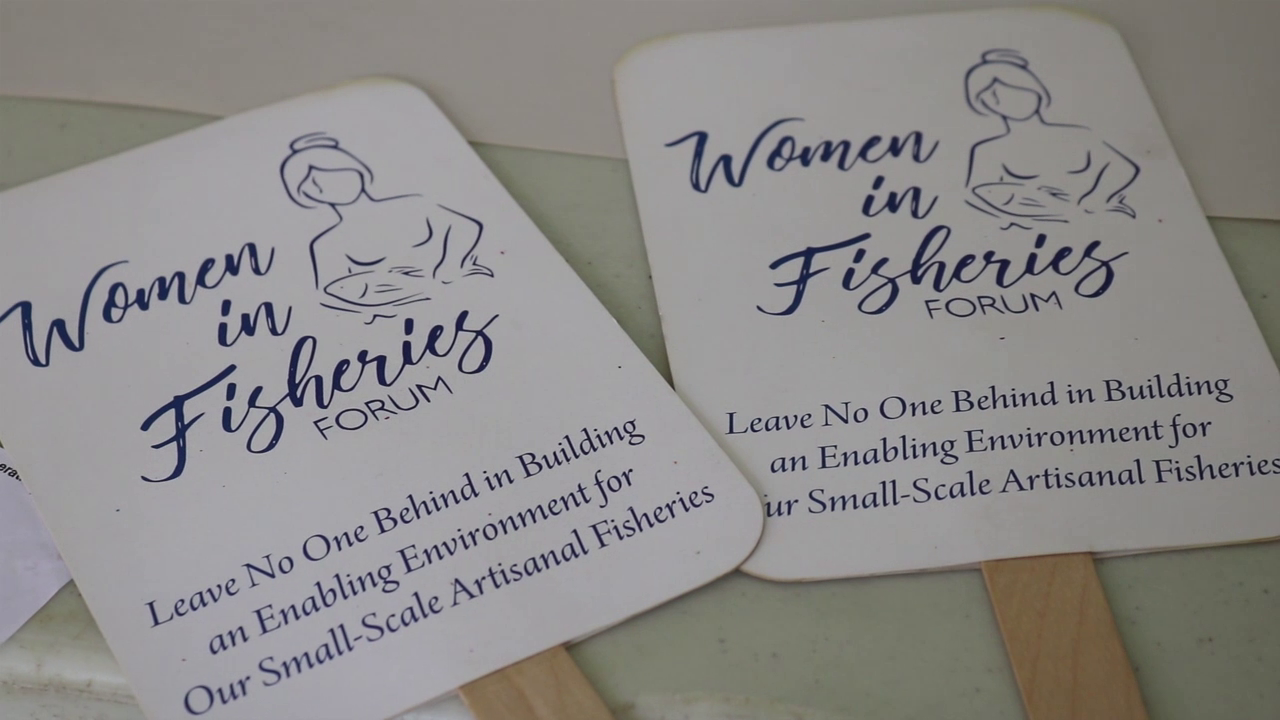

Facebook Comments